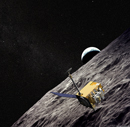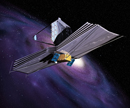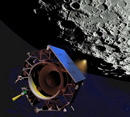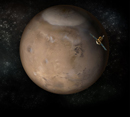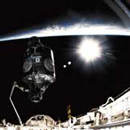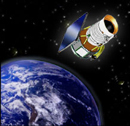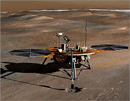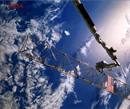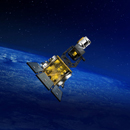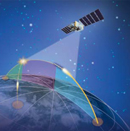| Abstract:
NexGenOps Workshop will help to define the new operations paradigm and new technologies needed for successful deep space mission operations. This workshop will integrate Systems Engineering methods, Mission Operations processes, and Human Factors practices. It will combine presentations and participative activities, so that the participants begin solving some of the most complex and difficult problems in the next generation of space exploration.
Theme and Goals:
Deep-space human missions beyond the Earth-Moon system are certain to be filled with uncertainties: new and unimaginable scientific discoveries, unprecedented operations decisions, mission-threatening systems malfunctions, hazards and threats never before encountered…and for the first time in the history of human spaceflight, speed-of-light limitations and planet movement will prevent crewmembers from relying on real-time ground assistance to identify, diagnose, and recover from anomalies and dangers. Ignoring this reality now will lead to show-stopping mission operations problems later. Paying attention to it now can be the starting point for game-changing advances in mission operations concepts and tools: from onboard decision support technologies, to new and more effective modes of human-system interaction, to distributed, asynchronous next generation command and control schemes.
NexGenOps Workshop is designed to help identify and define the new operations paradigm, and the new technologies and approaches needed for successful deep space mission operations. This daylong seminar and workshop will blend what we know about both human and system intelligence in new ways. This workshop will integrate Systems Engineering methods, Mission Operations processes, and Human Factors practices. It will combine presentations and participative activities, so that participants can begin to solve some of the most complex and difficult problems in the next generation of space exploration. Topics of discussion at the workshop will include:
- Autonomy and Control Authority – What situations define the need for local control instead of Mission Control? What is the structure for adaptive automation and the shift between human control and control by automated systems? What are the policies, protocols, and mechanisms for control allocation and transfer?
- Decision support – What does it really means and how can it be developed and deployed? How can human situation awareness and Naturalistic Decision Making be augmented through systems?
- Auto-maintenance – How can automated Integrated Vehicle Health Maintenance be architected into a space vehicle or habitat system? Will system self-diagnostics help the human explorers to trust the automated systems? What interfaces between IVHM, vehicle control, and people are really necessary?
- Human-rating for robotic and automated systems – How shall we apply these mandatory criteria to systems that have not been human-rated before? What is the best way to develop, model and test systems for human exploration programs and missions?
- Multiple-asset mission operations – What is the operations approach when integrated, interactive missions are in operation at the same time – and they involve both human and robotic assets, in proximity?
…and other topics as participants identify them. The workshop will offer preparatorypresentations in the morning sessions, but the real work of the workshop will result from participation in afternoon team activities that define and develop the issues and potential challenges for study in the Next Generation of mission operations.
Relevance:
Automated and robotic systems will enable long duration human space exploration such as lunar outposts and planetary exploration efforts. Such systems are expected to manage other systems within vehicles and habitats, ensuring that parameters for human safety and efficiency are being met, and allowing the human crew to use the large majority of their time and effort in exploration activities that only human beings can perform. These automated or robotic systems are unprecedented, yet the explorers must depend upon them for survival and for support in their work. This workshop will allow Information Systems experts to merge their knowledge with Systems Engineering practitioners and Human Factors leaders, and to ask the right questions that will guide future study and development of both human and information systems.
Solicitation Process:
The organizers of this mini-workshop interface with NASA centers and, through CCSDS security workshops, international space agencies on the topic of embedded security systems. In this capacity we have a direct solicitation path to potential participants performing interesting research and engineering in this area. We will engage these participants as part of a general workshop solicitation request and expect positive support from these communities. Further, we expect at least one invited tutorial on an existing platform for network security and will plan a panel discussion to address the objectives of the workshop.
Organization:
Session Chair(s): Lynn Baroff, NASA ARC, Computer Science Corporation, USA, lynn.e.baroff@nasa.gov
|






